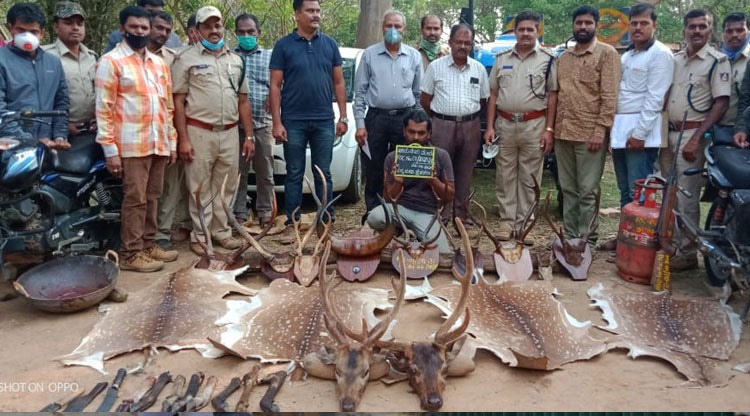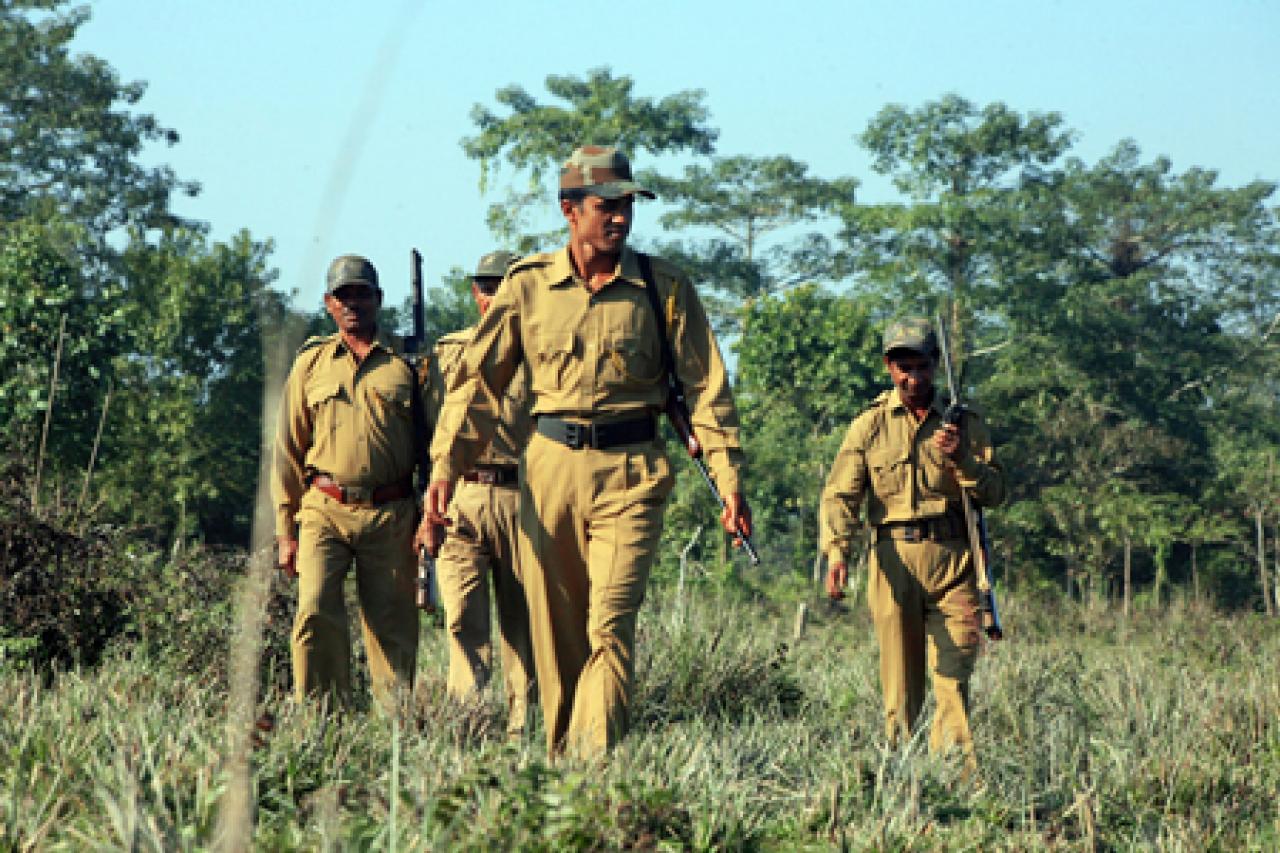Covid-19 causes surge in illegal wildlife trading & poaching
During India’s first major Covid-19 lockdown last year, reports began to emerge that due to the economic slowdown, there were drastic decreases in the levels of water and noise pollution, and a much-welcomed uphill trend in air quality. However, one aspect that was initially overlooked came to light when experts reported that poaching of several species of endangered animals in India had increased, even doubling in some areas. Traffic, a programme division of WWF, deals with the trade of wildlife and conservation of biodiversity. According to a June 2020 report, during the six-week lockdown, known poaching cases increased from 35 to 88 instances, compared to six weeks before the lockdown. The most affected group was ungulates (22 pc to 44 pc) and smaller mammals such as pangolins and monkeys (17 pc to 25 pc).
The lockdown forced many people to stay home or move back to their native locations, where despite the legal ramifications, unemployment has caused them to look for other ways to survive. Jose Louies works as the chief of the Wildlife Trust of India’s crime control division.
“Hunting for bush meat has significantly increased in most forest fringe areas. People are sitting at home, in places where wildlife is easily available, roaming around and free of cost,” he tells Media India Group. “So they can easily hunt these small animals – both for their own consumption and for earning extra income through local trade.”
Some incidences include a group of endangered Indian gazelles poached in Rajasthan, and wild animals including barking deers (Muntiacus muntjak) in Nagaland that were shockingly killed as a declaration of a “lockdown festival” by a group of hunters.
“Commodity export happens in India mainly through Mizoram and Nagaland. The demand is highest from countries such as Myanmar and China, where one-horned rhino skin and horns are desired for their supposed medicinal values,” Midul Dhar, a retired divisional forest officer at Dibru-Saikhowa National Park in Assam, tells Media India Group. Since international travel has been highly restricted once again due to lockdown, traders are not able to easily travel undercover to sell the items.

A one-horned rhino and her calf (Photo: Bhaskar Choudhury – WTI)
“Thankfully, since the government has classified forest and wildlife protection as ‘essential activities’, there are still forest officers who patrol the forests and surrounding villages to monitor any crime,” says Dhar, adding, “it may be more lax, with some operational challenges – decreased revenue and because some duties have been rerouted with some officers having to help the local community during this time.”
Poaching, therefore, is only one of the worrying aspects of animal endangerment.
“Although selling commodities from poaching is one issue, live animal trade is often much more organised and widespread not only in India, but across the world. In the past also there was a lot of trading but in the last two to three years, all sorts of animals began coming to India, because of changes in the economy and tastes that people developed,” he says. This international trade import includes turtles, tortoises, snakes, iguanas, and other reptiles.
Now, there is a well-established market in India, where the North-eastern and Bangladesh borders are largely used as transit routes. Kolkata is also one of the hubs into which the animals are brought.
Experts say that the trading of live animals must be taken seriously by the Ministry of Government, because the future consequences may be irreversible. One of the most troubling aspects of this industry is the possibility of zoonotic diseases being introduced in India.
“The live animals brought in don’t follow quarantine procedures and there no checking when they come into the country. Obviously, there is a health and safety issue for people, but these animals could also be bringing in pathogens harmful to other animals, as there is a higher chance of transmission of diseases in transit,” says Louies of the WTI.
Ironically, considering the wildlife trade in China is suspected to be the root of the coronavirus infection, this is especially disquieting.
“There are several issues with an unmonitored introduction of invasive species. Many of the reptiles, for example, can survive in Indian climactic conditions and our natural environment without need for much care. That is going be a huge problem where our biodiversity is concerned, because you don’t want alien species to come all of a sudden into our ecosystem and dominate the existing species,” he adds.
Oddly, as per the Indian Wildlife Protection act, “desirable” animals found in India such as the freshwater turtles are not allowed to be kept as pets by citizens, but the same rules are not properly in place when it comes to importing them from other countries. Louies explains that to combat this, there are already initiatives that have been taken by the Ministry of Environment in an effort to take a stock of the non-native animals kept by people.
Despite trade routes being blocked due to pandemic restrictions, traders are finding new ways to overcome legal barriers.
“We are seeing a steady increase in online trade where people use online platforms to undertake the illegal activities. There is an increase in attempts by suspects using social media for such activities. This trend is alarming and will be difficult to deal with,” says Louies. “Moreover, across India, there has been a trend of courts granting bail to suspects due to Covid-19, even in such cases.”
Moreover, it is important not to be complacent as any stagnancy of trading (such as the decrease of bird-related seizures) is likely to be temporary. Louies explains that NGOs such as WTI have conducted underground studies to investigate stockpiling.
“Recently in Odisha, about two weeks ago, there was a containment of bear cubs abandoned by the suspects because of the sudden police checks that are happening during the lockdown. Since easy opportunities have reduced, organised crime has taken a hit. However, some of the traders involved in the business are actually storing animals because they think that later, as Covid-19 eases up, the market will be open and there will be a rush of orders and profits,” says Louies.

Pangolin scales (Photo: Jose Louies – WTI)
Pangolins, which are especially popular for their meat and scales, are being collected and kept in covert “hotspots” by traders who wish to continue the business as they did before the Covid-19 lockdown.
“This is one of the main challenges we need to tackle vigilantly,” says Louies.
Dhar explains that the most important thing for the future of wildlife conservation in India is a need for a centralised information management system on wildlife crime across the country.
“Similar to how there is a unified command for the army and local police in different states to address crimes in the country, all state intelligence agencies, police, customs officers (dealing with import and export) and wildlife authorities need to take joint effort to prevent transportation and illegal wildlife activity,” he says.










